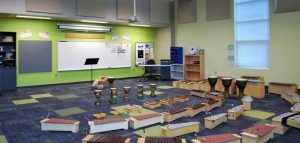What is English Language Testing System?
IELTS is an English language test for study, migration or work. Over three million people take our test every year. IELTS is accepted by more than 10,000 employers, universities, schools and immigration bodies around the world.

The world’s most popular English test for higher education and global migration
Educational institutions, employers, professional registration bodies and government immigration agencies often require proof of English language skills as part of their recruitment or admission procedures. IELTS is widely accepted for these purposes.
IELTS is designed to test the language ability of people who want to study or work where English is used as the language of communication. Over 3.5 million tests are taken each year.
Learn more about this topic by reading in on Cambrigde Assessment.
International English Language Testing System
The International English Language Testing System, or IELTS, is an international standardized test of English language proficiency for non-native English language speakers. It is jointly managed by the British Council, IDP: IELTS Australia and Cambridge Assessment English, and was established in 1989. IELTS is one of the major English-language tests in the world.
IELTS is accepted by most Australian, British, Canadian, European, Irish and New Zealand academic institutions, by over 3,000 academic institutions in the United States, and by various professional organizations across the world.

IELTS is the only Secure English Language Test approved by UK Visas and Immigration (UKVI) for visa customers applying both outside and inside the UK. It also meets requirements for immigration to Australia, where Test of English as a Foreign Language (TOEFL) and Pearson Test of English Academic are also accepted, and New Zealand. In Canada, IELTS, TEF, or CELPIP are accepted by the immigration authority
Teaching English as a second language is one thing, and having to teach English for IELTS adds a whole new dimension to the subject matter. Many people take the IELTS Exam to provide proof of their English skills for either immigration or academic purposes. A number of post-secondary institutions, governmental bodies, and private corporations recognize the International English Language Testing System (IELTS) results as confirmation of English proficiency level for countries like New Zealand, USA, Canada, and Australia.
After reading “English Language Testing System” you can check important issues for ESL teachers on the section PDFs.









